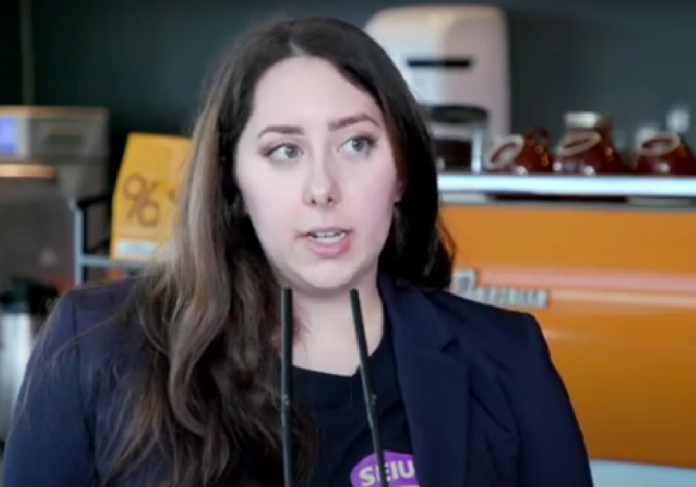Inflation has been wreaking havoc on British Columbians’ wallets and bank accounts over the last year, especially the low-income workers.
The BC government announced on Wednesday, April 5th that the minimum wage will increase to $16.75 for all workers in all sectors in the province, up from its previous $15.65 per hour.
The increase will take effect as of June 1st.
Annual increases to BC’s minimum wage have happened annually ever since 2015. This increase comes on the heels of the Canadian government announcing their minimum wage increase to $16.65 for all workers in federal sectors.
Related:
Ever since the feds announced their minimum wage top-up, all provinces and territories have followed suit and indicated they’d be increasing their jurisdiction’s minimum wage.
Harry Bains, Minister of Labour; Sam Jones, owner, 2% Jazz Coffee; Jim Stanford, director, Centre for Future Work and Marissa Iacobucci, a private liquor store employee gathered at 2% Jazz Café on Hillside Avenue for the announcement.
“Having a minimum wage that keeps up with inflation is a key step to prevent the lowest paid workers from falling behind,” said Bains.
“These workers and their families feel the impacts of high costs much more than anyone else. We are maintaining our policy of tying the minimum wage to inflation.”
BC’s goal in this increase was to increase the minimum wage in line with the current rate of inflation, which is based off the 2022 average rate of 6.9%
6.9% of $15.65 is equal to $1.08. The province rounded up to the nearest nickel value and set the minimum wage hike at an additional $1.10 per hour for employees earning minimum wage.
“Elevating the minimum wage is a necessary response to inflation,” said Stanford. “The inflation we are experiencing now in BC is driven by profits, not wages.”
“It is unfair to expect the most vulnerable workers to give up some of their non-discretionary income because of record high inflation. By ensuring fairer compensation for our lowest-paid workers, we will reduce inequality and foster a more inclusive society.”
Over the past 22 years, BC’s minimum wage has gone from one of the lowest in the country to one of the highest. In 2001, minimum wage was $8 per hour and that did not change until 2011.
Between 2011 and 2014 increases to the minimum wage were few and far between until 2015, when annual increases to help people with the ever-increasing rate of inflation began.
Iacobucci, who is a private liquor store employee, spoke at the conference about her struggles as a front line worker and minimum wage earner while trying to pursue an education simultaneously.
“Until recently, I worked for many years for minimum wage and the increases over the past five years made a big difference to me and my community,” said Iacobucci.
“A lot of my friends and co-workers are still making minimum wage and I guarantee this increase will make a huge difference for them, especially with the basics like food and rent that are increasing along with inflation.”
Iacobucci added that her and her co-workers struggle and on occasion must decide between paying rent and buying food while working full-time.
Jones, who owns 2% Jazz Coffee, wanted people to consider that small, local businesses like his which are value-based oftentimes get eaten alive by corporations who can afford to make being a small business owner incredibly difficult in every way.
He says that increasing the minimum wage helps his employees and is a step in the right direction of leveling the playing field with these corporations and income equity in general.
All who spoke at this press conference agreed, there is much more to be done, but annual increases are one small step in the right direction.


